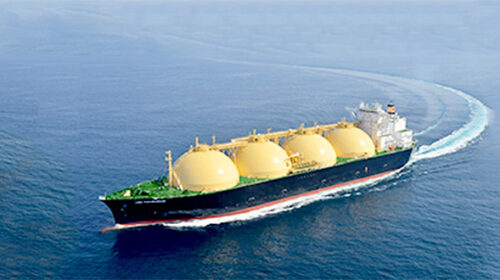Several U.S. oil and gas groups have responded favorably to a recent U.S.-EU LNG deal, which was announced in a White House statement on March 25.
Under the deal, the U.S. will strive to ensure additional LNG volumes for the EU market of at least 15 billion cubic meters in 2022 with expected increases going forward, the White House statement outlined. According to the statement, the European Commission will also work with EU member states toward ensuring stable demand for additional U.S. LNG, until at least 2030, of approximately 50 billion cubic meters per year.
“We welcome the president’s focus on expanding U.S. LNG exports to our European allies during this crisis, and we applaud the administration’s continued leadership in ensuring a unified international response to maximize pressure on Russia through additional sanctions,” American Petroleum Institute (API) President and CEO Mike Sommers said in an API statement.
“Over the past few months, American producers have significantly expanded LNG shipments to our allies, establishing Europe as the top U.S. LNG export destination. With effective policies on both sides of the Atlantic, we could do even more to support Europe’s long-term energy security and reduce their reliance on Russian energy,” Sommers added in the statement.
“We stand ready to work with the administration to follow this announcement with meaningful policy actions to support global energy security, including further addressing the backlog of LNG permits, reforming the permitting process, and advancing more natural gas pipeline infrastructure,” Sommers went on to say.
Energy Workforce & Technology Council CEO Leslie Beyer said, “we welcome the call for more exports of LNG to Europe and for increased domestic production”.
“Our industry is ready to help fill the gap as the world continues to shun Russian oil and gas. U.S. production is on the rise and can continue to ramp up, but the administration must pullback excessive regulatory hurdles, and support and encourage long-term investment in domestic oil and gas production and infrastructure,” Beyer added.
“We were encouraged by FERC’s actions … [on March 24] to approve three pending applications and to hold off on implementing detrimental policies on applications until the policies are finalized. Rapid increases in domestic production won’t happen overnight, but we are confident that the industry can step up and satisfy the energy needs of the U.S. and our allies,” Beyer continued.
Fred Hutchison, the CEO of LNG Allies, said, “establishment of this Joint Task Force is recognition of the critical role U.S. LNG can play in reducing Europe’s dependence on unreliable Russian natural gas while meeting its net-zero by 2050 climate ambitions”.
“We are excited that the United States and EU have responded favorably to our request to stand-up a joint task force and we pledge our full and enthusiastic cooperation,” Hutchison added.
According to a BofA Global Research report, the recently announced U.S.-EU LNG deal has few specifics and fails to address fundamental challenges to increasing supplies.
“Specifically export capacity constraints in the U.S., import capacity constraints in Europe and limited new practical LNG capacity additions globally until 2025,” the BofA Global Research report stated.
“We see no quick fix to meet REPowerEU’s targets to pivot towards incremental LNG – other than bidding cargoes from other markets (as is already happening today), with inevitable price competition or to displace existing gas demand with other readily available sources of energy – which would almost certainly mean fossil fuels that directly contradicts EU’s Taxonomy and Green deal,” the Bofa Global Research report added.






